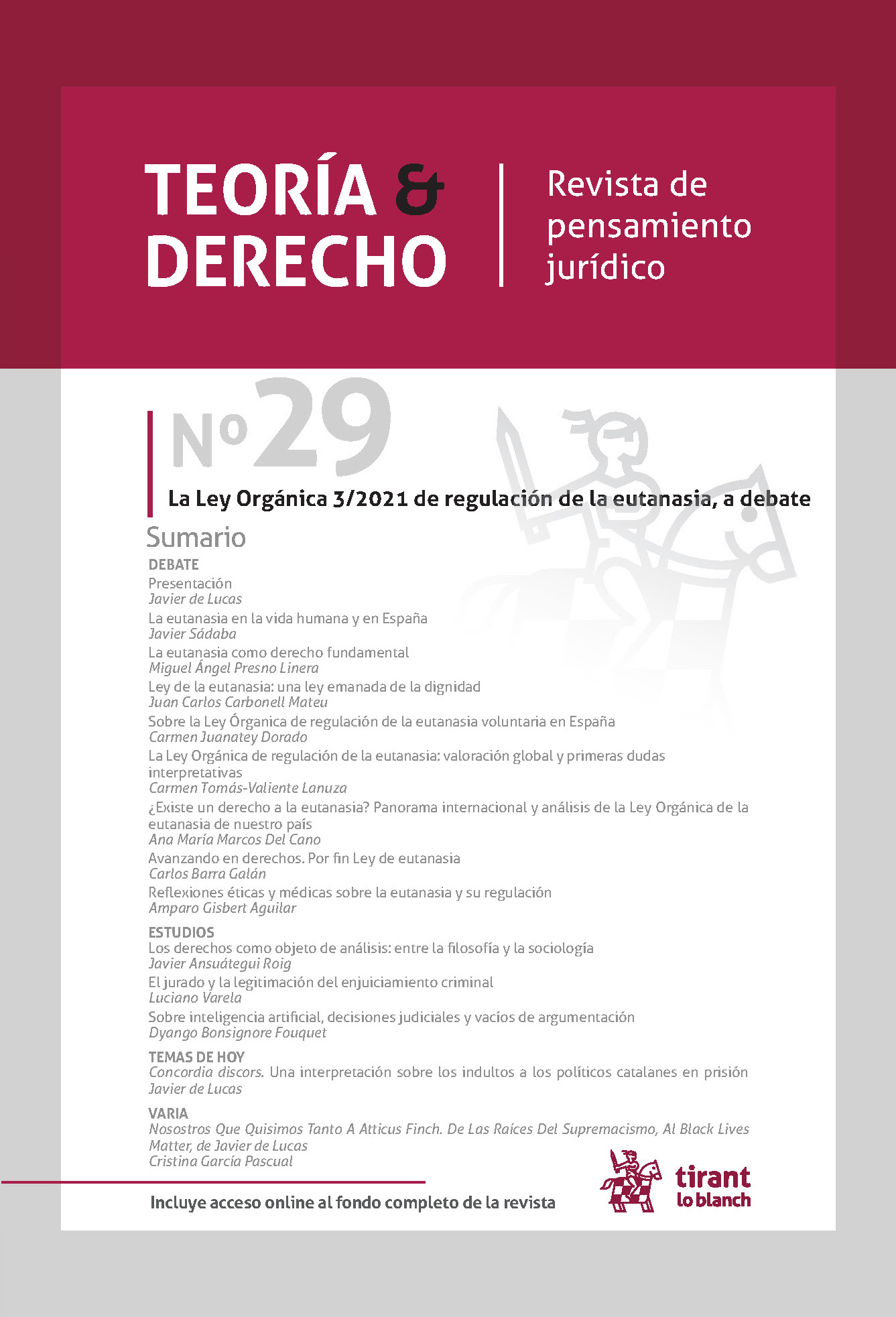Ley de la eutanasia: una ley emanada de la dignidad
DOI:
https://doi.org/10.36151/td.2021.003Palabras clave:
eutanasia, dignidad, capacidad de autodeterminación personal, Comisión de Garantía y Evaluación, médico o médica responsable, documento de voluntades anticipadas, contexto eutanásico, objeción de conciencia sanitaria, prestación de la ayuda para morirResumen
La aprobación de la Ley Orgánica de regulación de la eutanasia supone un paso importantísimo en el Derecho español hacia el reconocimiento de la capacidad de autodeterminación de la persona, emanada de su Dignidad. La LORE no es (solo) una norma despenalizadora —si lo fuera, sería insuficiente—, sino reguladora de una prestación que implica al Estado social y democrático de Derecho en la facilitación a los ciudadanos de la satisfacción de una necesidad deseada y solicitada. Se analiza el detallado procedimiento previsto en la ley y se sugiere la necesidad de evitar ciertas interpretaciones y consecuencias no deseables. Pese a la afirmación anterior, la ley contempla una Disposición final que modifica el Código Penal y que es analizada muy críticamente. Con todo, no quedan satisfechas las consecuencias que deberían inferirse de la vinculación entre la dignidad, el libre desarrollo de la personalidad y la capacidad de autodeterminación personal.
Descargas




















